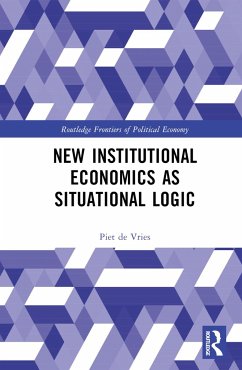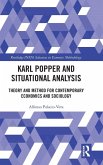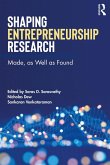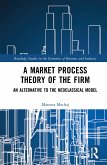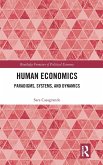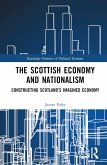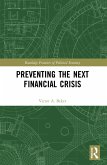Drawing on phenomenological and realist approaches, this book surveys the theoretical evolution of new institutional economics.
For all its popularity and explanatory power, new institutional economics is not a homogenous field but encompasses a range of different theoretical approaches starting from Coase and the introduction of transaction costs. In particular, the concept of rationality is a rich source of dispute leading to a bifurcation between 'insider' and 'outsider' perspectives. The insider view refers to studying conscious human beings - the economic actor - who seek their self-interest and find themselves in their mundane situation. The self-interest of the economic actor bestows him with logic. It makes the logic of the situation the method of economics, as Karl Popper establishes. Thus, the book argues for the positioning of new institutional economics as situational logic, that is, an economic theory that formulates and studies single-exit situations thatface the economic actor. Ultimately, this book presents a critical appraisal of new institutional economics theories based on a substantiated methodological perspective that effectively navigates the theorist between realism and rigor.
This book will be of interest to readers of new institutional economics, economic theory, and the philosophy of economics and social sciences.
For all its popularity and explanatory power, new institutional economics is not a homogenous field but encompasses a range of different theoretical approaches starting from Coase and the introduction of transaction costs. In particular, the concept of rationality is a rich source of dispute leading to a bifurcation between 'insider' and 'outsider' perspectives. The insider view refers to studying conscious human beings - the economic actor - who seek their self-interest and find themselves in their mundane situation. The self-interest of the economic actor bestows him with logic. It makes the logic of the situation the method of economics, as Karl Popper establishes. Thus, the book argues for the positioning of new institutional economics as situational logic, that is, an economic theory that formulates and studies single-exit situations thatface the economic actor. Ultimately, this book presents a critical appraisal of new institutional economics theories based on a substantiated methodological perspective that effectively navigates the theorist between realism and rigor.
This book will be of interest to readers of new institutional economics, economic theory, and the philosophy of economics and social sciences.
"There are relatively few discussions of the philosophical foundations of the new institutional economics (NIE). This book helps to fill a big gap. It ties the NIE theoretical underpinnings to Karl Popper's notion of situational logic. With this innovative approach, Ronald Coase and Frank Knight come out as key figures in the foundation and development of the NIE, more so than Douglass North and Oliver Williamson. Henceforth, work in the NIE tradition will have to come to terms with Piet de Vries's pioneering interpretation."
Geoffrey M. Hodgson
Emeritus Professor, Loughborough University London.
Geoffrey M. Hodgson
Emeritus Professor, Loughborough University London.

